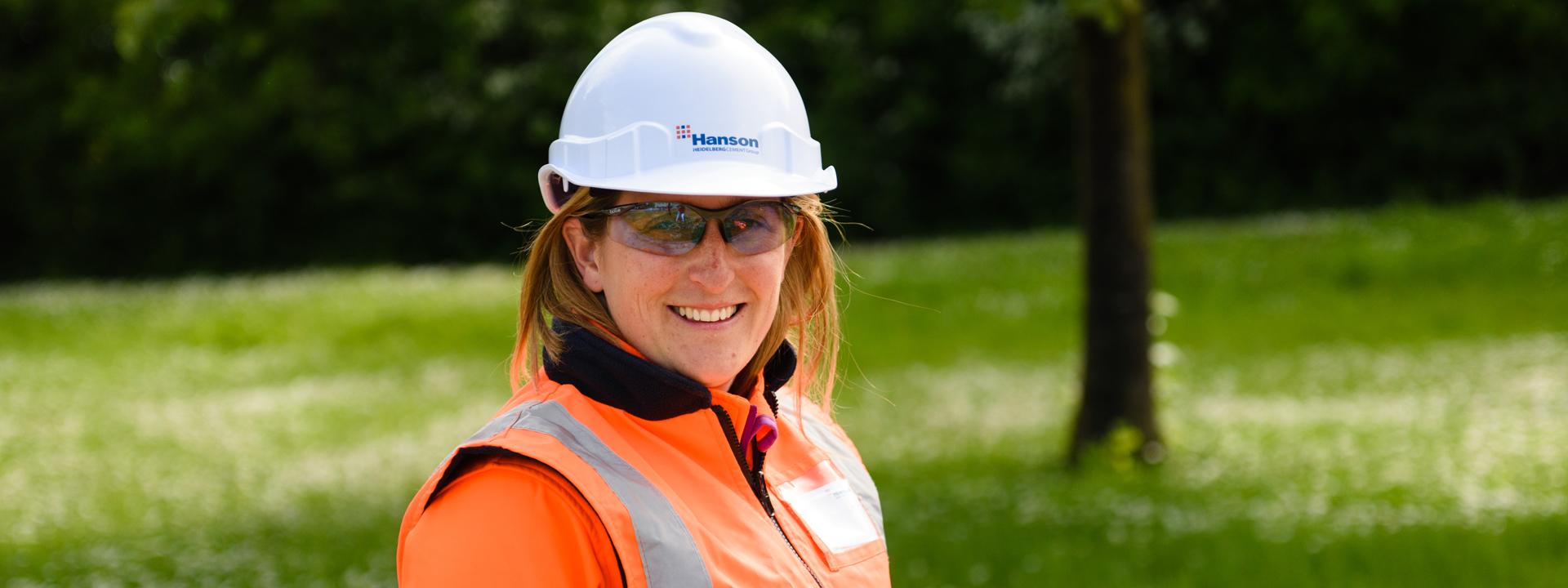Progress update
Plotting a road map for the next decade
by Marian Garfield, head of sustainability
Over the last 12 months we have been discussing and developing a forward-looking sustainability strategy to guide us through the next decade.
Our current indicators and targets, which were set in 2011 and run to 2020, need to be reviewed and updated to reflect an ever-evolving sustainability agenda and changing priorities amongst all our stakeholders.
A number of factors have been considered in developing our new strategy including:
- Our parent company HeidelbergCement’s recently launched 2030 sustainability commitments.
- The UN’s sustainable development goals and the Paris agreement on climate change.
- The UK government’s 25-year environment plan and industrial strategy.
- The emerging importance of social issues including human rights, equality and fairness.
Between March and May 2018 we carried out a series of formal consultations involving the leadership team, over 100 employees and an external stakeholder group including customers and sector associations. The events were facilitated by an independent consultant and considered the key issues that should be fed into our future plans, their prioritisation, and how the strategy should be communicated internally and externally.
Inevitably, some diverse views were received, but the overarching messages were clear:
- The six HeidelbergCement commitments should be used as a basis for future reporting, but with some name changes to clarify the objectives for the UK market, and the inclusion of the topic ‘Enabling sustainable construction’.
- The UN sustainable development goals should be adopted and linked to the key topic areas to show we are in line with global action.
- The future approach must be easily communicated at all levels of the organisation.
A list of around 70 indicators has now been created, of which 40 are already covered in our existing approach; others reflect new interests, in particular those introduced by HeidelbergCement’s 2030 commitments. Around 30 of the indicators will have targets, the rest will be monitored and reported.
The general proposals have been fed back to everyone involved in the consultation and were presented at our annual stakeholder day in September 2018. The indicators, objectives and targets are now being refined and finalised prior to publishing, and will provide us with a firm base on which to build the future of the business.
Turning to our 2018 sustainability performance, I am pleased to report that mains water use and waste to landfill are both below our 2020 targets and we have seen a welcome reduction in dust emissions and environmental complaints.
The total number of lost time injuries (LTIs) fell by one from 21 to 20, but there is still a lot of work to do in this critical area. A key area of focus is distribution, where total LTIs doubled during the year from four to eight. We are stepping up training for our drivers and introducing safety awareness sessions to identify and eliminate potential risks both on our own and on customer sites.
Good housekeeping is also important. A tidy site is invariably a safe site and as part of our health and safety week we launched a dedicated micro site called 'clean site, safe site' with advice, guidance and fun competitions to improve both awareness and engagement.
Our health and wellbeing programme, introduced at the start of the year, has been a huge success with hundreds of employees getting involved, either by tackling fitness and fundraising challenges or taking advice on lifestyle and health. Activities during the year included cold weather health, a free flu inoculation offer through a partnership with Boots, and mental health awareness training sessions provided by our corporate partnership with the construction industry charity Mates in Mind.
We want to be a fair, inclusive and diverse company that values meritocracy, openness and transparency. To support this, we have introduced a fairness, inclusion and respect (FIR) policy, sponsored and led by our aggregates division managing director James Whitelaw. We are also corporate members of Women in Science and Engineering (WISE), a national campaign which aims to increase the participation, inclusion and success of women in science, technology and engineering, and have been participating in its ‘10 steps’ workshop, which aims to ensure women in industries like ours where they are in the minority have the same opportunities to progress their careers as their male colleagues.
A 13-strong committee is behind the continued development of the health and wellbeing campaign and the FIR initiative. It meets quarterly to review progress and decide on next steps.
Finally, I am delighted to report that three Hanson UK projects were selected to feature in HeidelbergCement’s annual global sustainability week at the end of June.
The five-day programme of international webinars and conference calls is designed to highlight and share best practice from around the world on a range of sustainability topics.
Environmental sustainability manager Iain Walpole gave a presentation on simplification of the waste permitting process for fuel for cement plants. Senior sustainability manager Martin Crow talked about the industry-leading Hanson UK sustainability stakeholder engagement programme, and talent and development manager Karen Wright described the successful community projects carried out by employees as part of the novice manager training scheme.

